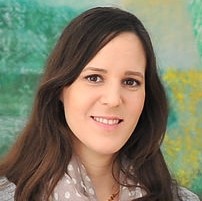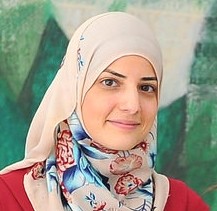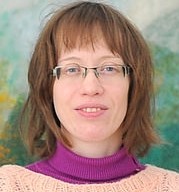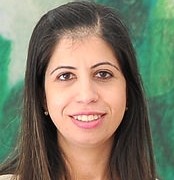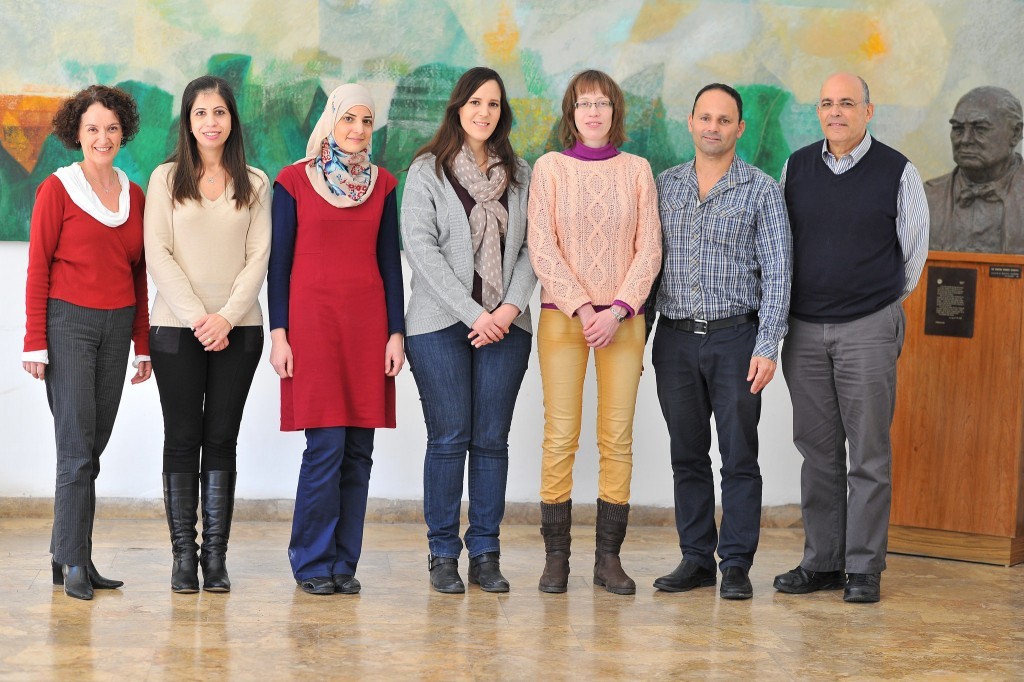The Generous Baroness: Scholarships for Outstanding Female Doctoral Students
Four students from the Technion have won the “Ariane de Rothschild Women Doctoral Program” scholarships , awarded by the Rothschild Caesarea Foundation to promote equal opportunities in academia and society in Israel.
The scholarship includes tuition fees and a living allowance for four years, and a one-time grant for participating in an international conference. “The threshold for admission to the program is particularly high and allows doctoral students to focus on their research field,” said Vardit Gilor, who manages the program at the Foundation. “We hope that the Foundation’s support and assistance will enable these outstanding female doctoral students to advance within academia while developing their personal and family life.”
The four students who were awarded scholarships this year are Yevgenia Orlov, doctoral student in the laboratory of Prof. Raphael Linker, Faculty of Civil and Environmental Engineering; Nitzan Krinsky and Hanan Abumanhal, doctoral students in the laboratory of Assistant Prof. Avi Schroeder, Wolfson Faculty of Chemical Engineering; and Maria Salameh, doctoral student in the laboratory of Assistant Prof. Netanel Korin, Faculty of Biomedical Engineering.
Nitzan Krinsky and Hanan Abumanhal from Prof. Avi Schroeder’s laboratory are developing new customized treatments for cancer patients. “It’s a very exciting moment when two outstanding doctoral students from my group win such a distinguished award,” said Prof. Schroeder.
Nitzan Krinsky earned her bachelor’s degree at the Technion Faculty of Biotechnology and Food Engineering as a member of the IDF’s Academic Reserve. After six years of military service, during which she conducted research at the Israel Naval Medical Institute, she returned to the Technion to study in a special doctoral track, the Interdepartmental Program in Biotechnology. “This is an applied laboratory where developments go the whole route from the concept and formulation level all the way to preclinical trials,” she explains. “What we have here is a combination of a broad range of fields – chemical engineering, biology, biomedicine, pharmacology and biotechnology – and turning basic concepts into applications in human medicine. Our group is developing targeted nanoparticles into which we put the desired substance – a drug, a protein, etc – as the realization of the concept of personalized medicine.”
Hanan Abumanhal earned her bachelor’s and master’s degrees at the Hebrew University of Jerusalem, in the Excellence Program in Pharmaceutical Sciences. As part of her master’s degree, under the supervision of Prof. Simon Benita, she specialized in transporting proteins to the skin by means of micro-emulsions.
“For my doctorate, I was looking for an applied nanotechnology and medicine laboratory, and that’s how I came to Prof. Avi Schroeder,” she says. Here she is developing nanotechnologies to improve the treatment of metastatic cancer, with a focus on ovarian cancer. She says, “70% of ovarian cancer patients are diagnosed late, i.e. at the metastasis stage, which is much harder to deal with. Today we realize that it’s not enough to attack the malignant cells, but must address all the surrounding tissue – blood vessels, the intercellular medium, etc – that supports the tumor. In other words, what we need is a synergistic treatment that changes the whole environmental balance, thereby ‘strangling’ the tumor.”
The “Ariane de Rothschild Women Doctoral Program” encourages giving and social engagement, and the two researchers plan to mentor two young at-risk women who participate in The Academy for Life program, which endeavors to make higher education accessible to marginalized populations. In addition, they are involved in a project that was started by Maayan Reshef, a former student in the laboratory, in collaboration with the Municipality of Haifa. This is a project for developing innovative kids for teaching science at kindergartens and elementary schools, allowing teachers to conduct scientific experiments together with the children. The experiments are designed to be simple and concrete, with an emphasis on the areas of health and nanotechnology.
Yevgenia Orlov, from Prof. Raphael Linker’s laboratory, earned her bachelor’s degree at the Technion Faculty of Biotechnology and Food Engineering and her master’s degree at the Technion Faculty of Civil and Environmental Engineering, and began her doctoral studies a year ago. Along with her studies, she volunteers to tutor students in the Introduction to MATLAB course, a general course at the Technion.
Her doctorate is in the field of precision agriculture. “I am researching young unripe apples,” she explains. “The purpose of the study is to develop a method that will make it possible to distinguish between immature fruits that tend to survive, even after spraying, and immature fruits that will not survive. I’m trying to understand how the spray affects the rate at which the immature fruit falls and how the natural fruit falls process occurs.” She says, “The knowledge that I acquired in my two previous degrees helps me a lot in my doctorate now, although the transition to a doctoral degree was not easy. I had to study optics because the samples are examined using optical aids. My doctorate is very diverse and requires me to learn a lot in diverse fields, which is of course very challenging and interesting.”
Maria Khoury Salameh earned her bachelor’s and master’s degrees at the Technion Faculty of Biomedical Engineering and has begun her doctoral studies at the Faculty, under the supervision of Assistant Prof. Netanel Korin. She did her master’s degree under Prof. Shulamit Levenberg.
In her doctorate, she is developing methods for directing drugs to areas of coronary atherosclerosis, in order to prevent blockages in these arteries, which supply blood to the heart. To this end, she is studying the engineering aspects of blood flow in this area and examining ways to direct nanoparticles loaded with medication to a target. Now, at the beginning of her doctoral studies, she is focusing on conducting computerized flow simulations and building an appropriate experimental system. Along with her studies, she volunteers at an elementary school in Haifa, tutoring a group of third to eighth graders in math.



